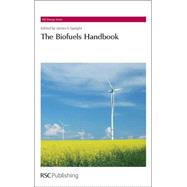The Biofuels Handbook
, by Speight, James G.- ISBN: 9781849730266 | 1849730261
- Cover: Hardcover
- Copyright: 7/18/2011
Petroleum-based fuels are well-established products that have served industry and consumers for more than one hundred years. However petroleum, once considered inexhaustible, is now being depleted at a rapid rate. As the amount of available petroleum decreases, the need for alternative technologies to produce liquid fuels that could potentially help prolong the liquid fuels culture and mitigate the forthcoming effects of the shortage of transportation fuels is being sought. The dynamics are now coming into place for the establishment of a synthetic fuels industry; the processes for recovery of raw materials and processing options have to change to increase the efficiency of oil production and it is up to various levels of government not only to promote the establishment of such an industry but to recognise the need for available and variable technology.This timely handbook is written to assist the reader in understanding the options that available for the production of synthetic fuel from biological sources. Each chapter contains tables of the chemical and physical properties of the fuels and fuel sources. It is essential that the properties of such materials be presented in order to assist the researcher to understand the nature of the feedstocks as well as the nature of the products. If a product cannot be employed for its hope-for-use, it is not a desirable product and must be changed accordingly. Such plans can only be made when the properties of the original product are understood. The fuels considered include conventional and unconventional fuel sources; the production and properties of fuels from biomass, crops, wood, domestic and industrial waste and landfill gas.






